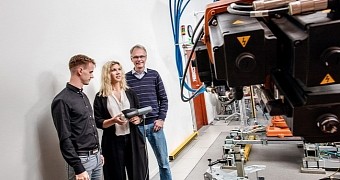Something that applies to humans, and surprisingly to robots as well, is that smooth operations, pun intended, will help robots live longer.
Apparently, minimizing slower industrial robots will get a longer life by up to 40 percent. According to a study made by Chalmers University of Technology, robots that move slower even when doing nothing in particular, save much more energy than those in a standstill.
This discovery has been made thanks to a new optimization algorithm that changes a robot's speed to work in a slower pace when he should be idle, in case he waits for other robots to do its job.
This study has been funded, not surprisingly this time, by General Motors, looking to make its industrial robots much more energy effective, and obviously to reduce the energy bill the company has to pay for its army of electro-mechanical workers.
To achieve this safe optimization, some robots that move in an area must be coordinated. The optimization tool will therefore initially identify where robots may collide, and the entry and exit positions for each collision zone, and for each robot path.
Then the optimization program will start logging the activity of each robot in its cycle and collision zones as well. Then, the information is processed by the optimizer which generates new control instructions that can be directly executed by the robots.
Since half the electricity bills car makers have to pay come from operating tens if not hundreds of industrial robots, this might be a great achievement indeed.

 14 DAY TRIAL //
14 DAY TRIAL // 